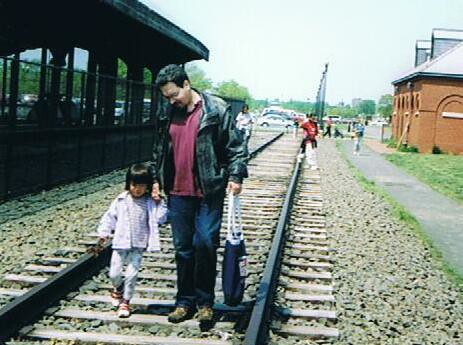🦋 Imperfect
...another chapter in the annals of me learning Spanish comes with Juan Goytisolo's story "Los amigos" (from Para vivir aquÃ) -- two things about this story are, a very high proportion of the clauses have "we" as their subject -- so I'm getting used to another set of conjugations that I have not seen as much of so far -- and, it seems like a lot more of the verbs are in imperfect past tense than I'm used to. So that adds a new wrinkle, trying to figure out how to read that tense. The Spanish language courses say, imperfect indicative X == "was X'ing" -- this seems to generally work, although it would get extremely tedious to translate everything this way. Until now I have recognized imperfect by the "-aba" ending -- verbs which end in -ar, which is most verbs, form their imperfect this way. But I come to find out, verbs which end in -ir and -er do not exhibit this behavior; their imperfect looks roughly like a preterite with -a tacked on to the end. I think I have been reading this, until now, as if it were a preterite -- this may account for why this story seems to have so much more imperfect in it. (Also: I had not realized that first person plural preterite construction is almost exactly the same as first person plural indicative -- when I started reading this story I thought it was being told in the present tense.) I love the way Goytisolo opens stories. Look at this:
For the past six days I had not been getting a moment's rest. The rhythm of life in the city had changed quickly; in the faces of the men and women who covered the sidewalks was written a firm resolution, full of hope. We had discovered that we were not alone, and after so many years of shame the discovery was astonishing. Our gazes would intersect and they were gazes of complicity. The most insignificant gestures of daily life -- the simple act of walking -- took on a miraculous aura. People followed their ordinary paths silently, and this silence, from hundreds and thousands of people, was more eloquent than any word.
The story is about some friends who find themselves in a political upheaval. One (the narrator) decides to leave the country, the others are taking leave of him. The imperfect tense that's used throughout is a little confusing -- it makes it seem like the upheaval has been going on for a longer time than the "six days" mentioned at the beginning. And it's insanely frustrating not to have any idea what happened a week ago -- the narrator does not refer to that again after the first sentence. This gives me a feeling similar to The Life and Times of Michael K , of wanting more setting -- though I guess the lack of exposition is more forgivable in a short story. Is the city Barcelona? Is the political leader whose "familiar silhouette stood out on a background of airplanes, tanks, guns, ships" in the newspapers Franco?
posted afternoon of Saturday, December 12th, 2009
➳ More posts about Juan Goytisolo
➳ More posts about Short Stories
➳ More posts about Readings
|

